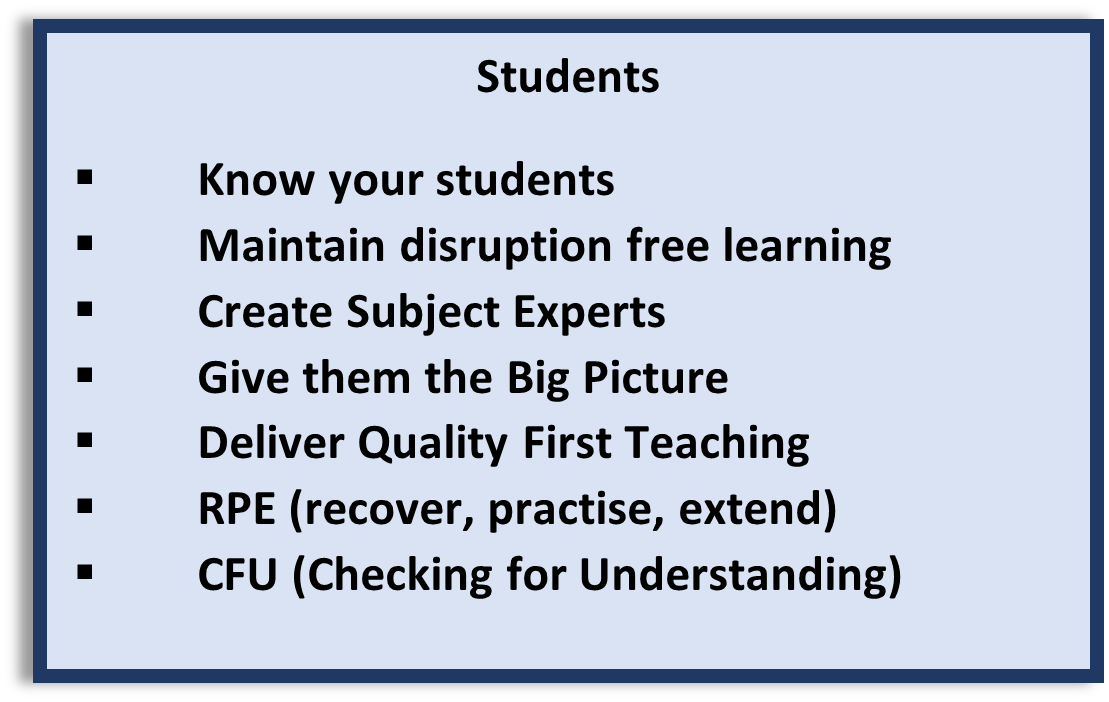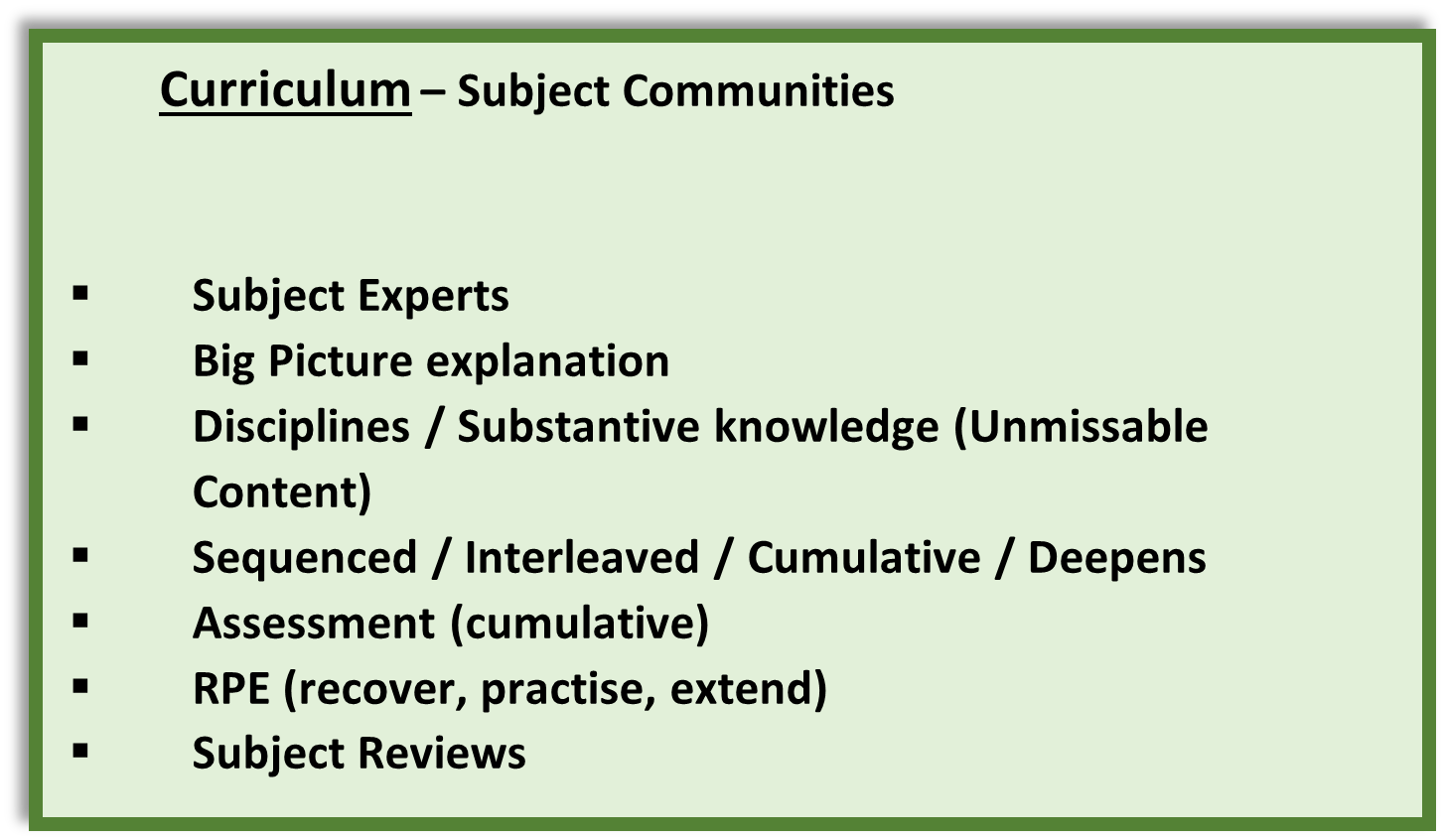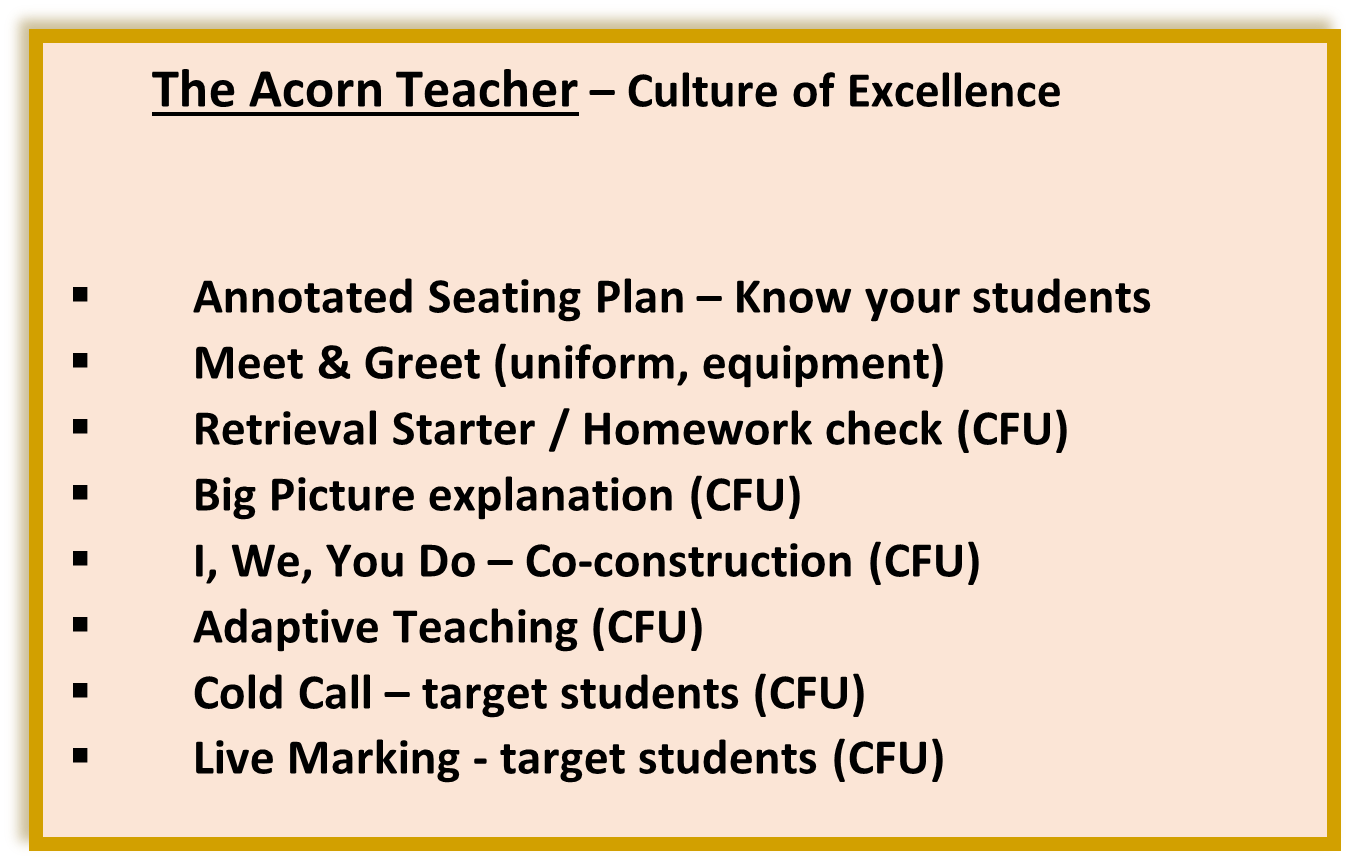Teaching and Learning
At Clarendon Academy, we adopt a research-informed approach to teaching and learning. We firmly believe that good teaching is the most important tool we have as a school to help our young people achieve their potential and go on to pursue fulfilling careers. Good teaching is important for all students, but especially for those who are categorised as Pupil Premium or SEND. With good teachers in our classrooms, we can help these students to overcome the barriers that they face in education and to thrive alongside their peers.
The Great Teaching Toolkit
The Great Teaching Toolkit is a framework for excellent teaching. It was developed by Evidence Based Education following an extensive review of research and through the contributions of leading figures and organisations in education. You can read the full details of this resource by clicking on the link below:
Great Teaching Toolkit Evidence Review
The Great Teaching Toolkit identifies four main skill areas or dimensions that make an effective teacher:
Dimension 1: Understand the content
Dimension 2: Create a supportive environment
Dimension 3: Maximise opportunity to learn
Dimension 4: Activate hard thinking.
At Clarendon Academy, these four dimensions of effective teaching are the means by which we develop our teaching practice, as well as a means by which we monitor and evaluate the impact of teaching across the school.
We hold a number of whole-staff CPD sessions across the academic year where each of these four dimensions comes into focus, including a weekly best practice sharing session. However, we believe that the most effective professional development for teachers takes place in a subject-specific context. As such, our subject leaders and the subject communities they belong to develop their own Faculty CPD plans for their teams, which typically focus on dimensions 1 and 4 of the Toolkit.
Alongside this, we also provide coaching for our teaching staff. This is a peer-led system, whereby teachers who have particular strengths in specific dimensions of the Toolkit support those who need to improve in those same dimensions. From our experience of coaching and the evidence on its impact across the education sector, we know that it makes a significant impact on the quality of teaching in our classrooms, but that it also helps create a supportive culture of improvement throughout our school.
Our CPD Priorities
Each year, our school leaders and heads of subject agree on a particular set of skills that we aim to improve across the whole school. You can see our historic and current CPD foci below:
2021-22:
- Making effective use of feedback and response to feedback and raise student attainment.
2022-23:
- Thinking Out Loud: Promoting the use of oracy and peer interactions to improve student experience and attainment.
- Making use of scaffolding as a means of improving attainment, especially amongst students with SEND.
2023-24:
- This is how we teach it: A selection of pedagogical priorities that we believe will provide an excellent standard of teaching in all of our classrooms, including adaptive teaching, modelling and scaffolding. Please click on the link below for further details.
This-Is-How-We-Teach-It-23-24.pdf
As well as school-wide CPD foci, staff receive training on Trust-wide priorities. For the academic year 2023-2024, this focus is on modelling.
Each year, we participate in Trust-wide reviews of each of the subjects we teach. These subject reviews lead to the identification of development priorities and inform subject-specific CPD priorities.
Lessons at Clarendon
Our aim at Clarendon is always to deliver lively, engaging lessons that help students build on their existing knowledge and that help them take the next important steps towards being subject experts.
To help us achieve this on a day-to-day basis in our classrooms, we have a number of important features in each of our lessons or classrooms:
Minimum Expected Grades: We use the information we have on our students from previous assessment to calculate Minimum Expected Grades (MEGs). These represent the level that data-based predictions tell us that each student is likely to achieve, but of course, we always encourage our students to aim higher than this. We record MEGs on all our students books (or folders) so that they are clear about what they should be able to achieve in each subject – and to invite them to surpass this.
Seating Plans: We organise student seating in our classrooms because this allows us to promote positive peer interactions, and also because it helps us address the needs of some students who may benefit from sitting in a particular location.
Clear Objectives and the Big Picture: Our curriculum model emphasises the important of students knowing what they are learning, how this links to what they have learnt before, and where their learning might take them next. To support this, we provide clear learning objectives and links to each subject’s ‘big picture’ in each lesson.
Live Scaffolding: Within each lesson, teachers prioritise vulnerable students to receive additional one-to-one support.
Spaced Learning: Typically, each lesson begins with an activity designed to review knowledge that our students learnt days, weeks, months, or even years ago. This is part of our strategy for spaced learning: the process whereby we regularly revisit things students have learnt in the past. This is important because it helps them to learn more and to remember it for longer.
Response to Feedback: Our teachers provide regular written or verbal feedback, which we expect our students to respond to using purple pen. This is important because we know from a wide range of research that giving students regular opportunities to respond to what their teachers have told them has more impact on their achievement than providing feedback alone.
RPE: This stands for Recover – Practise – Extend. At regular intervals, our teachers stop delivering new content and instead revisit unmissable content from their subject. Students who missed this unmissable content due to absence or other reasons focus on recovery; students who require additional time to perfects their use of this content focus on practise; and students who have grasped this content are stretched through extension.
(Key Stage 3) Vocab in 20: During nominated lessons across the fortnightly timetable, students in Years 7-9 learn to spell and use subject-specific vocabulary. This is important because it helps our students broaden their vocabulary and supports them in sounding like real subject experts.
(Key Stage 5) PLCs and Academic Calendars: At Key Stage 5, we provide students with personal learning checklists (PLCs) and calendars for each subject. The former allows students to effectively track their learning in each subject and to record the areas they need to improve on, whilst the latter clarifies what they will be studying and when. This is important because it helps our Key Stage 5 students develop even greater ownership of their learning as they prepare for greater independence in the workplace or in further education.







